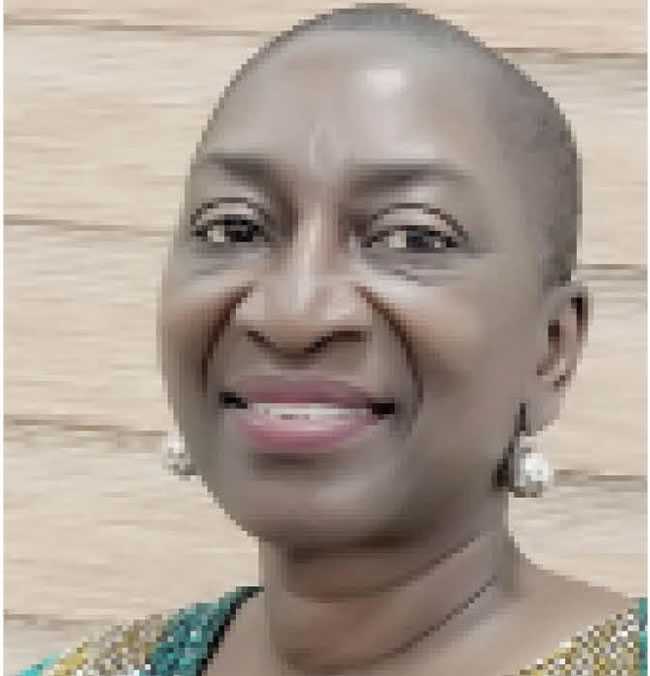Professor Oyeronke Oyewumi, a United States-based Nigerian scholar, has been selected by the African Studies Association as the winner of its 2021 Distinguished Africanist Award. Ms Oyewumi, the daughter of the Soun of Ogbomoso, a paramount ruler in Oyo State, is the first African woman to win the award since its inception. The professor of sociology at Stony Brook University, New York, speaks to SATURDAY TRIBUNE on the feat.
What does this award mean to you?
The award means a lot to me. Since I was informed of it on September 14, 2021, the honor has grown even more on me, as I ponder the immensity of it. Discovering earlier winners of the prize/award such as Akin Mabogunje, Ali Mazrui and J. Ade Ajayi made me realise the awesome company into which I have been admitted, and how fortunate to be recognised for my talent and hard work. It is clear that in each generation, very few will have this honor. Another thing that brought home the importance of this award is the poignant/moving words of appreciation that I received from many quarters, most especially from young academics such as ‘Like so many African scholars, I have been fundamentally transformed by Professor Oyeronke Oyewumi’s scholarship. The Invention of Women, What Gender is Motherhood? Gender Epistemologies, amongst many others, are texts that have given so many us the language and tools to make sense of the ways we are positioned within the world and the confidence to reclaim our epistemologies’. One of the biggest challenges that Africans face on the global stage is how to be ourselves and if my work helps us to claim what is ours, and to stand confidently in our truth, I am extremely gratified of my contribution. As Africans, we have to stand on solid ground even as we pivot and struggle to transform the difficult situation in which we find ourselves.
To what or to whom do you owe this award?
I cannot but say that my family background of privilege as a Yoruba was crucial. The culture has always held much fascination for me; perhaps because I grew up in an immigrant setting in Jos, far away from the storied Yoruba towns. My upbringing in a space that was not ethnically Yoruba dominant attuned me to the fact that there are different ways of being. This fact ingrained in me a deep sense of the Yoruba saying, ona kan ko w’oja (there is not one road to the market). The diversity of my early experience in a cosmopolitan city like Jos taught me the importance of appreciating diversity of various kinds, most significantly in religion, culture and ethnicity. I carried a consciousness of comparative languages and cultures in my head and this became quite useful in my scholarship.
In graduate school at the University of California, Berkeley, two significant developments made my studies possible. First, by the time I enrolled in the university as a foreign student, I was already a mother. I showed up in graduate school with my two-and-a-half-year-old daughter, having just divorced my husband. So, I desperately needed childcare if I was to attend my classes, and yet I had little financial resources with which to enroll my daughter in a daycare center. I was lucky to find a daycare in the middle of the student residential ‘village’ in which I had rented an apartment. The fee for their services was on a sliding scale – you paid according to your income. Since I was a poor graduate student, I paid almost nothing. The kicker was that I found the space at the time I needed it, since the demand was high and there was a long waitlist. The second fortuitous happening was my discovery of a Nigerian woman – Noroware Okundaye – who had a son of the same age as my daughter. We became fast friends and she supported me in many ways for years, most especially co-mothering my daughter. The fact that I could count on her support was invaluable.
Over the years, I must acknowledge the friends, colleagues and community that shored me up far away from home and in often terribly difficult conditions.
You should have a piece of advice for ladies out there who see you as a role model. How can they get to the height you have attained in life?
For women scholars, the university is not a particularly user-friendly place. Because of this, for us to succeed, it is crucial to have structures in place such as affordable child care. This is not an individual problem that ought to be addressed by one person at a time. The fact that I found a daycare centre in which to enroll my daughter at the beginning of my graduate school career was a testament to the fact that some activists had fought for such a community centre. The implication is that if more women are going to realise their full potential, we must fight for rights and institutions that will support all our lives in all their complexities.
As a purported role model, a big lesson from my experience is the need to have community and one that is responsive to our needs. The challenge of enabling more women rests on the building of support systems. I am grateful for my success but I cannot minimise the costs of building a life and a career in a racist and sexist culture, far away from home. Coming full circle, I wonder whether perhaps my orientation has always been to be far away from home.
YOU SHOULD NOT MISS THESE HEADLINES FROM NIGERIAN TRIBUNE
We Have Not Had Water Supply In Months ― Abeokuta Residents
In spite of the huge investment in the water sector by the government and international organisations, water scarcity has grown to become a perennial nightmare for residents of Abeokuta, the Ogun State capital. This report x-rays the lives and experiences of residents in getting clean, potable and affordable water amidst the surge of COVID-19 cases in the state…
Selfies, video calls and Chinese documentaries: The things you’ll meet onboard Lagos-Ibadan train
The Lagos-Ibadan railway was inaugurated recently for a full paid operation by the Nigerian Railway Corporation after about a year of free test-run. Our reporter joined the train to and fro Lagos from Ibadan and tells his experience in this report…
[ICYMI] Lekki Shootings: Why We Lied About Our Presence — General Taiwo
The Lagos State Judicial Panel of Inquiry probing the killings at Lekki Toll Gate, on Saturday resumed viewing of the 24hrs footage of the October 20, 2020 shooting of #EndSARS protesters by personnel of the Nigerian Army…
ICYMI: How We Carried Out The 1993 Nigerian Airways Hijack —Ogunderu
On Monday, October 25, 1993, in the heat of June 12 annulment agitations, four Nigerian youngsters, Richard Ajibola Ogunderu, Kabir Adenuga, Benneth Oluwadaisi and Kenny Razak-Lawal, did the unthinkable! They hijacked an Abuja-bound aircraft, the Nigerian Airways airbus A310, and diverted it to Niger Republic. How did they so it? Excerpts…
WATCH TOP VIDEOS FROM NIGERIAN TRIBUNE TV
- Let’s Talk About SELF-AWARENESS
- Is Your Confidence Mistaken for Pride? Let’s talk about it
- Is Etiquette About Perfection…Or Just Not Being Rude?
- Top Psychologist Reveal 3 Signs You’re Struggling With Imposter Syndrome
- Do You Pick Up Work-Related Calls at Midnight or Never? Let’s Talk About Boundaries






